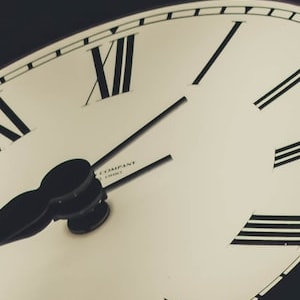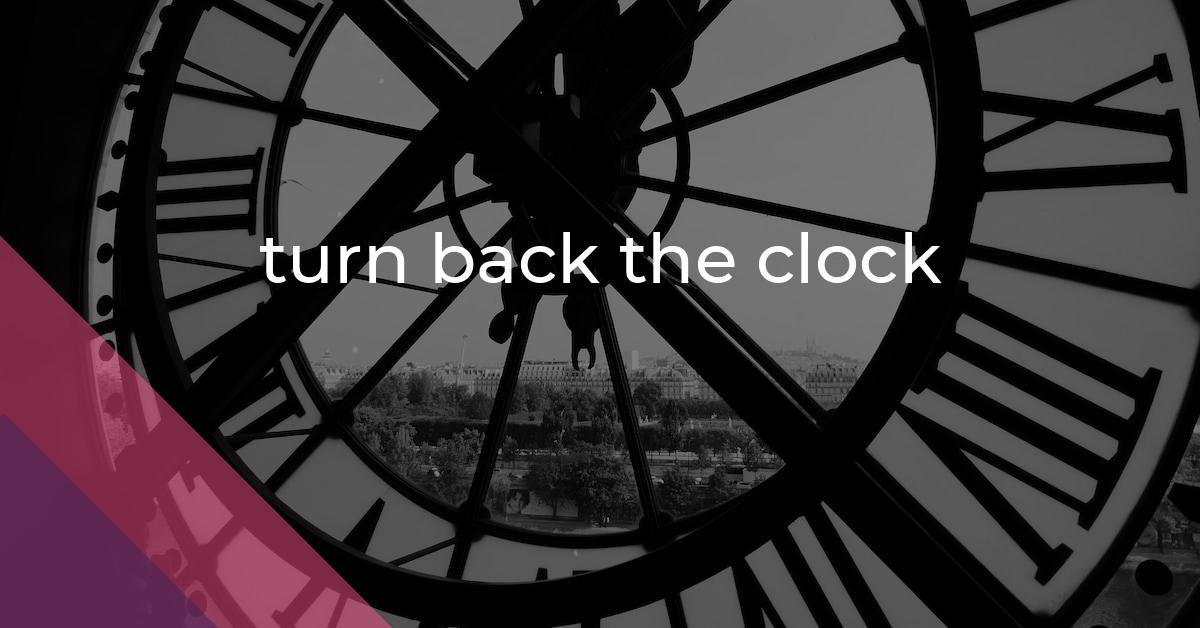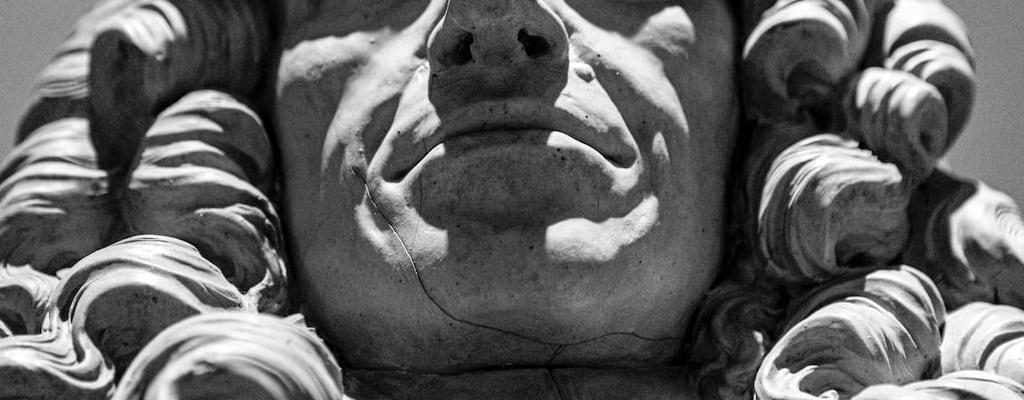turn back the clock: Idiom Meaning and Origin
What does ‘turn back the clock’ mean?
The idiom "turn back the clock" means to go back in time, undoing or reversing the effects of previous actions or events.

Idiom Explorer
The idiom "wind back the clock" means to go back to a previous time or to reverse the effects of time in order to recreate a past situation or feeling.
The idiom "unring a bell" means that it is impossible to undo or unsay something that has already been said or done, especially if it has caused a negative or irreversible impact.
The idiom "turn of events" refers to an unexpected change or shift in a situation or sequence of events.
The idiom "turn into" means to undergo a transformation or change, typically resulting in becoming something else or adopting a different form or state.
The idiom "turn in" means to go to bed or to go to sleep.
The idiom "turn a trick" refers to the act of performing a task or solving a problem, often in a clever or skillful way. It can also have a negative connotation, implying the use of deception or manipulation to achieve a desired outcome.
When used as an idiom, "turn around" means to change direction, to reverse a situation, or to make a significant improvement in a short amount of time.
The idiom "turn a phrase" means to skillfully express or articulate something in a clever or interesting way, often using words and language creatively. It refers to the ability to produce witty, memorable, or powerful sentences or phrases.
The idiom *turn against* means to change one's feelings or allegiance towards someone or something, becoming negative, hostile, or unsupportive.
The idiom "turn a corner" means to make progress or experience a positive change, especially after a difficult or challenging period.
The Forgotten Stories
One of the idioms that has become an integral part of the English language is "turn back the clock." This idiom is widely used to express a desire to go back in time and undo or change past events. It is often used in a figurative sense, rather than a literal one, and is frequently seen in expressions of regret or nostalgia.
The origins of this idiom can be traced back to the early 20th century. The concept of turning back time itself has always captivated human imagination, but the phrase "turn back the clock" seems to have gained popularity in the 1920s. This coincided with the widespread use and popularity of clocks that had been designed to be easily turned back, making it a fitting metaphor for reversing time.
Since then, "turn back the clock" has found its way into various forms of literature, music, and popular culture. It has been used in novels, poems, songs, and even movie titles, further cementing its place in the English language. This widespread usage has contributed to the idiom's familiarity and acceptance among native English speakers.
The idiom "turn back the clock" is most commonly used to express a longing to change something in the past. It portrays a sense of dissatisfaction or regret about certain events or choices and a wish to have the ability to alter them. It signifies a desire to rewrite history and undo the consequences of past actions, ultimately suggesting that the present would be more ideal if one could reverse time.
One related idiom that has a similar meaning is "wind back the clock." This expression is used interchangeably with "turn back the clock" to convey the same desire to go back in time and change past events. Both idioms emphasize the longing to rectify mistakes or alter the course of history.
However, it is important to acknowledge that "turn back the clock" is ultimately an expression of an unattainable desire. Time, as we understand it, is irreversible, and the idiom reflects a longing that can never be fulfilled. It highlights the impermanence of life and the impossibility of altering the past, emphasizing the importance of accepting and learning from our mistakes rather than dwelling on what could have been.
The idiom "turn back the clock" has a counterpart in the phrase "turn back." This expression carries a similar meaning to the original idiom, but it lacks the specific reference to the concept of time. "Turn back" is often used to suggest a desire to return to an earlier state or revert to a previous condition. It implies a wish to undo certain actions or decisions and find a way to go back to a more favorable or familiar situation.
Similarly, another related idiom is "put the clock back." This expression also conveys a desire to reverse time and change past events. It signifies a wish to bring back a previous era or return to a more favorable period in history. Like "turn back the clock," "put the clock back" speaks to a longing for a second chance and a belief that things were better in the past.
Despite the fact that these idioms are steeped in nostalgic longing and a desire for change, they also remind us of the limitations of human agency in altering the course of events. While we may yearn to turn back time, we must ultimately accept that time moves only forward, and we must learn from our past experiences rather than dwelling on what could have been.
The idiom "turn back the clock" embodies the human longing for a second chance to rectify past mistakes or change the course of history. Its origins in the early 20th century have paved the way for its widespread usage and popularity, making it a familiar expression in the English language. However, it should be recognized that the idiom represents an unattainable desire, emphasizing the importance of accepting the irreversible nature of time and finding growth in our past experiences.
Example usage
1. After my divorce, I often find myself wishing I could turn back the clock and undo my mistakes.
2. The team's victory in the championship game was a testament to their ability to turn back the clock and play like they did in their prime.
3. Technology has come a long way, but there's still something charming about vintage record players that make you feel like you've turned back the clock.
More "Time" idioms



